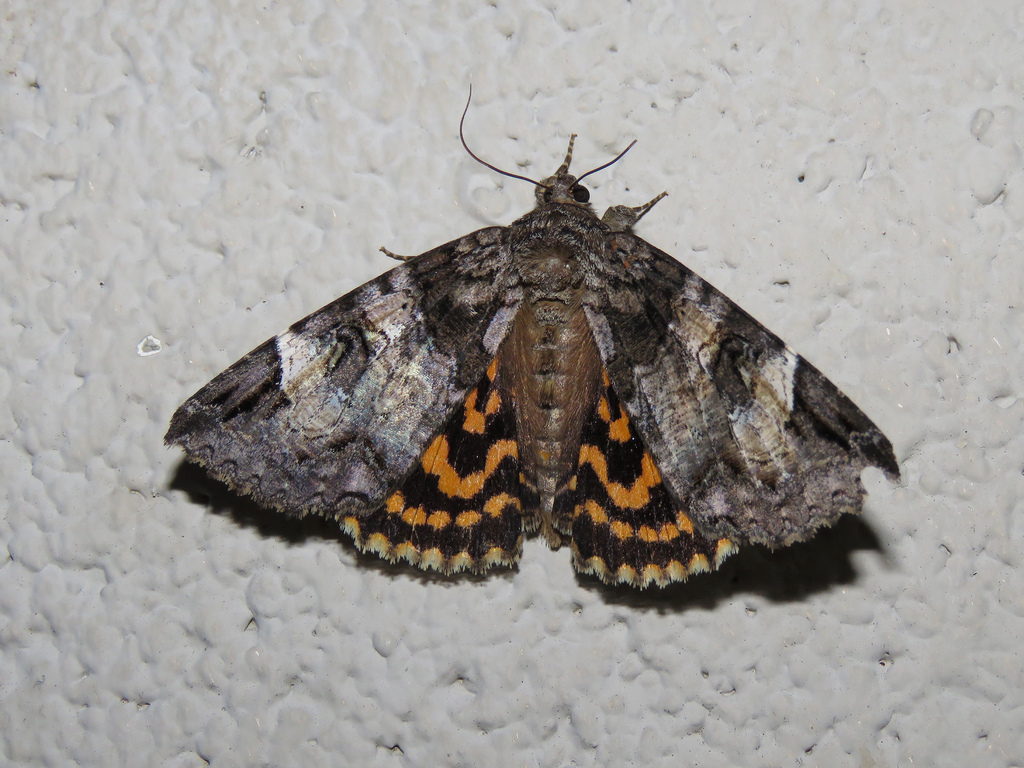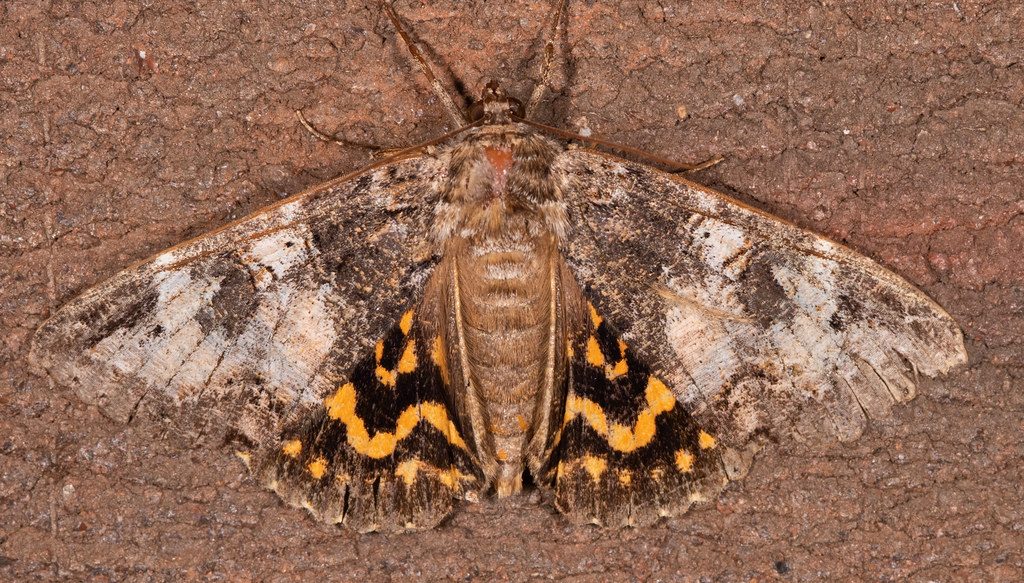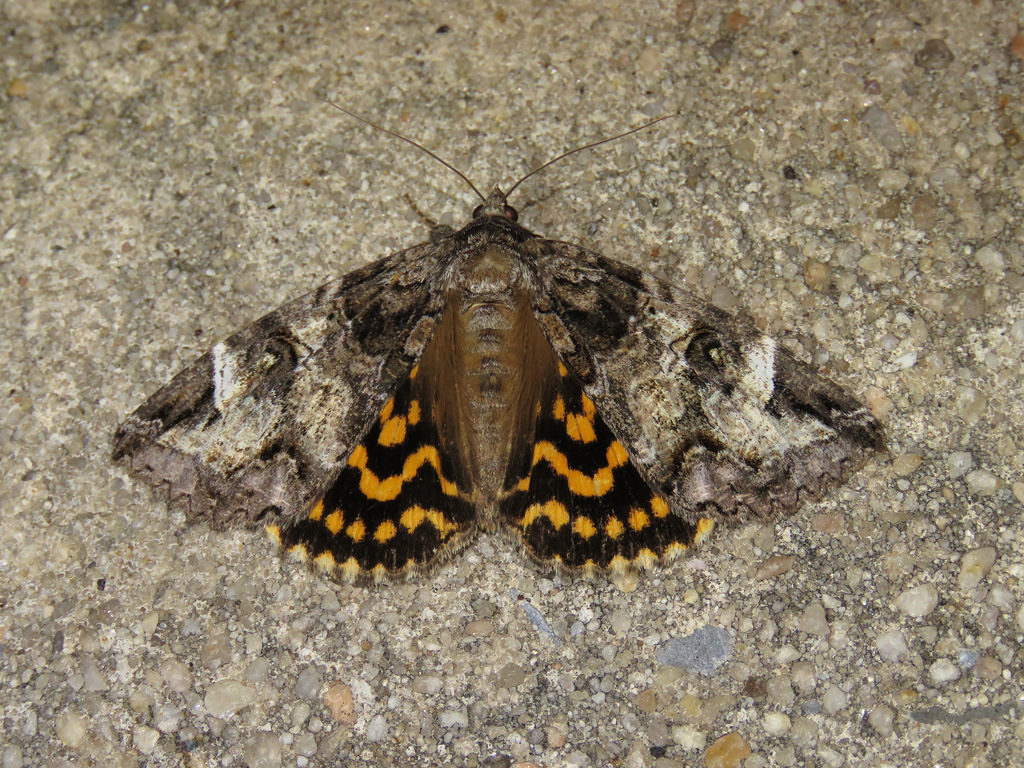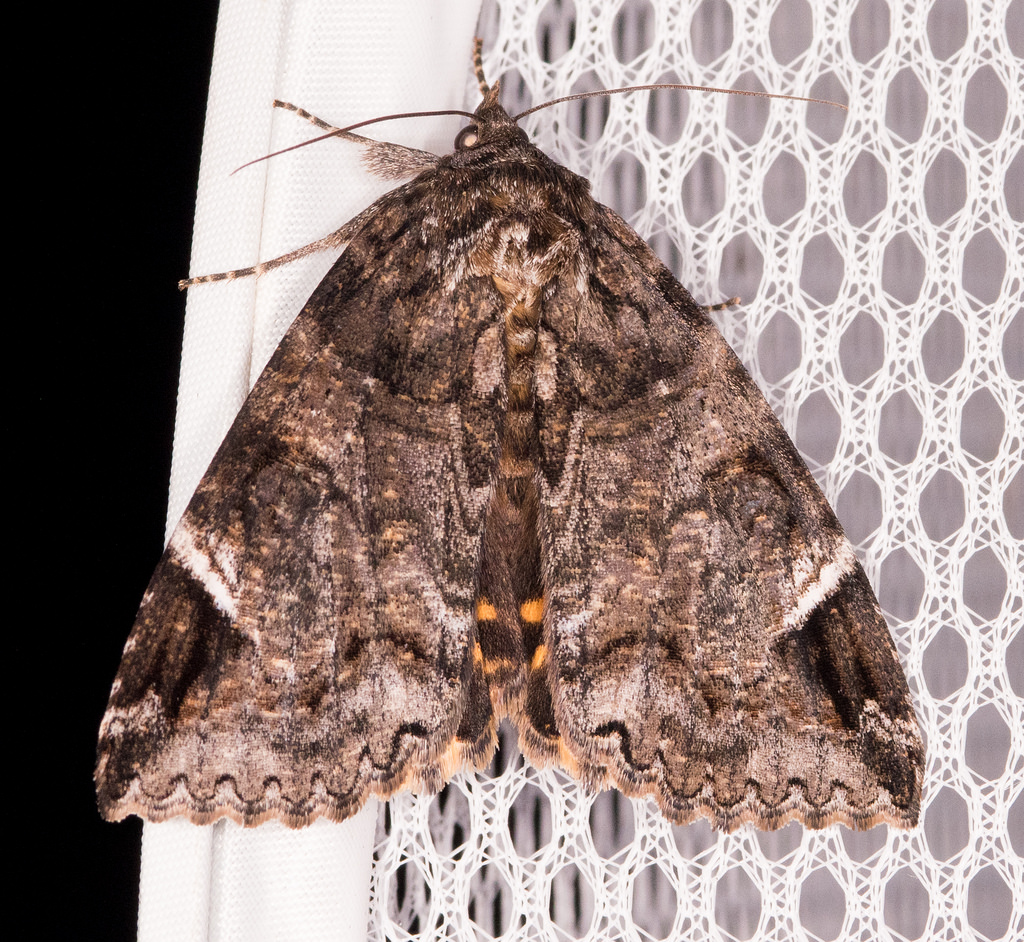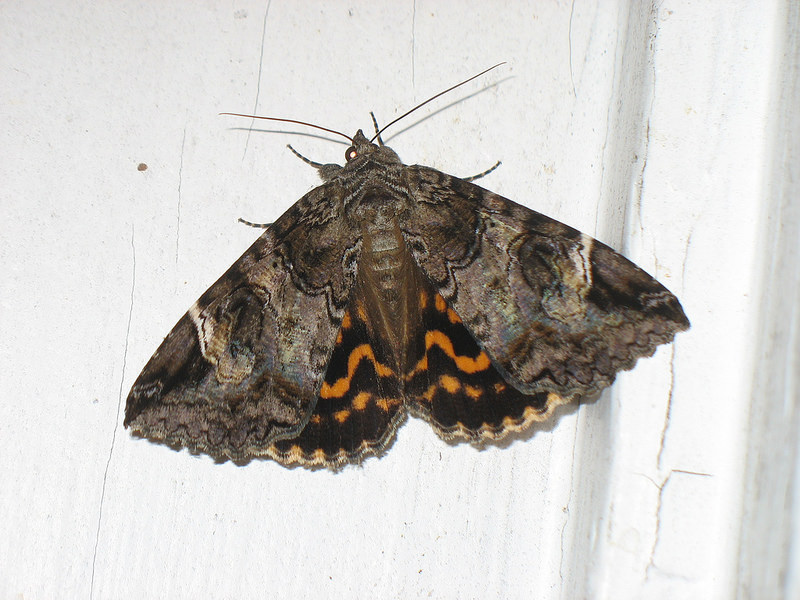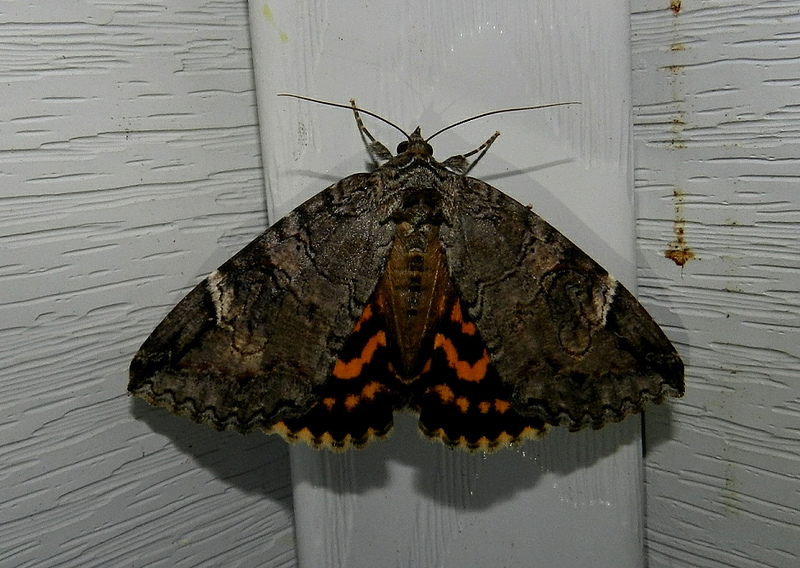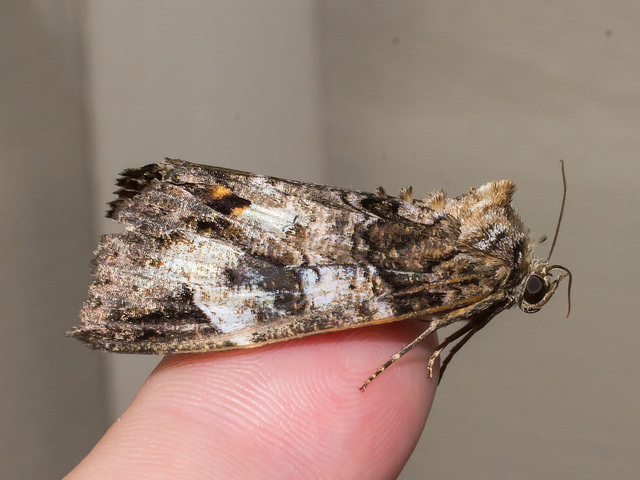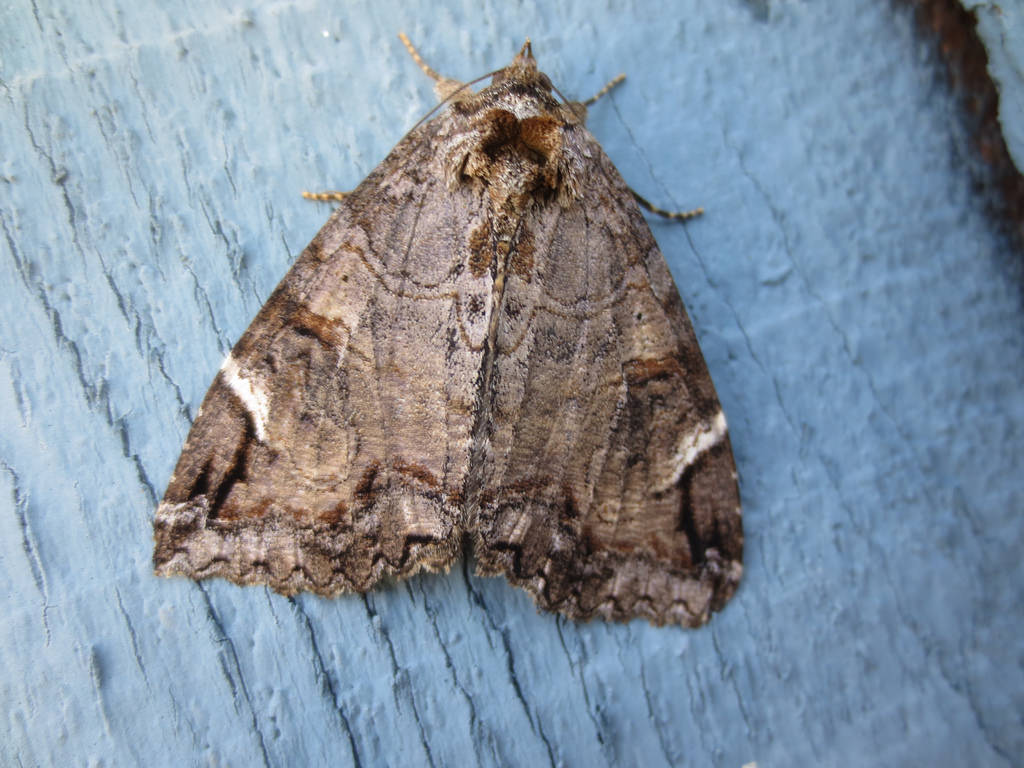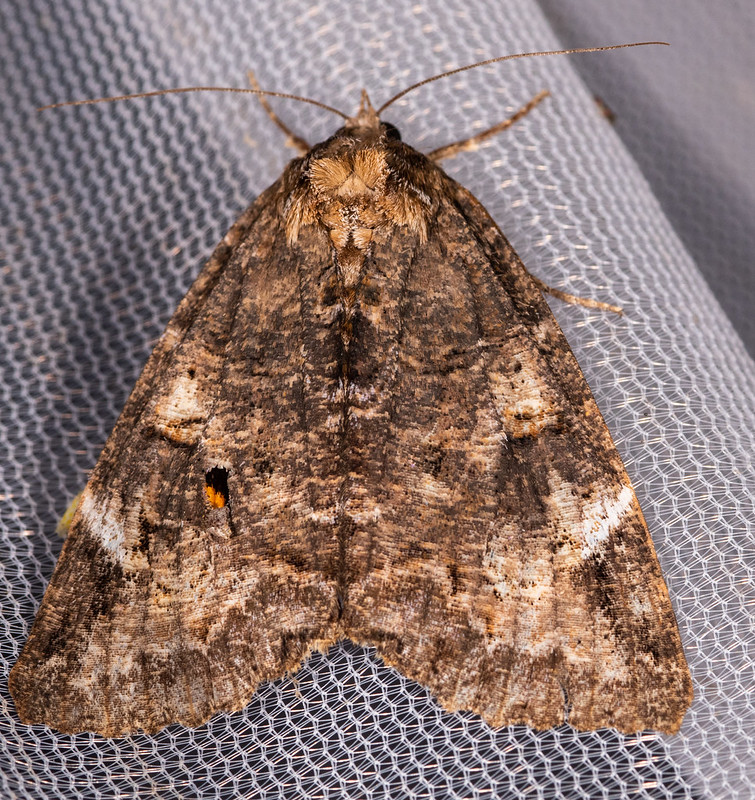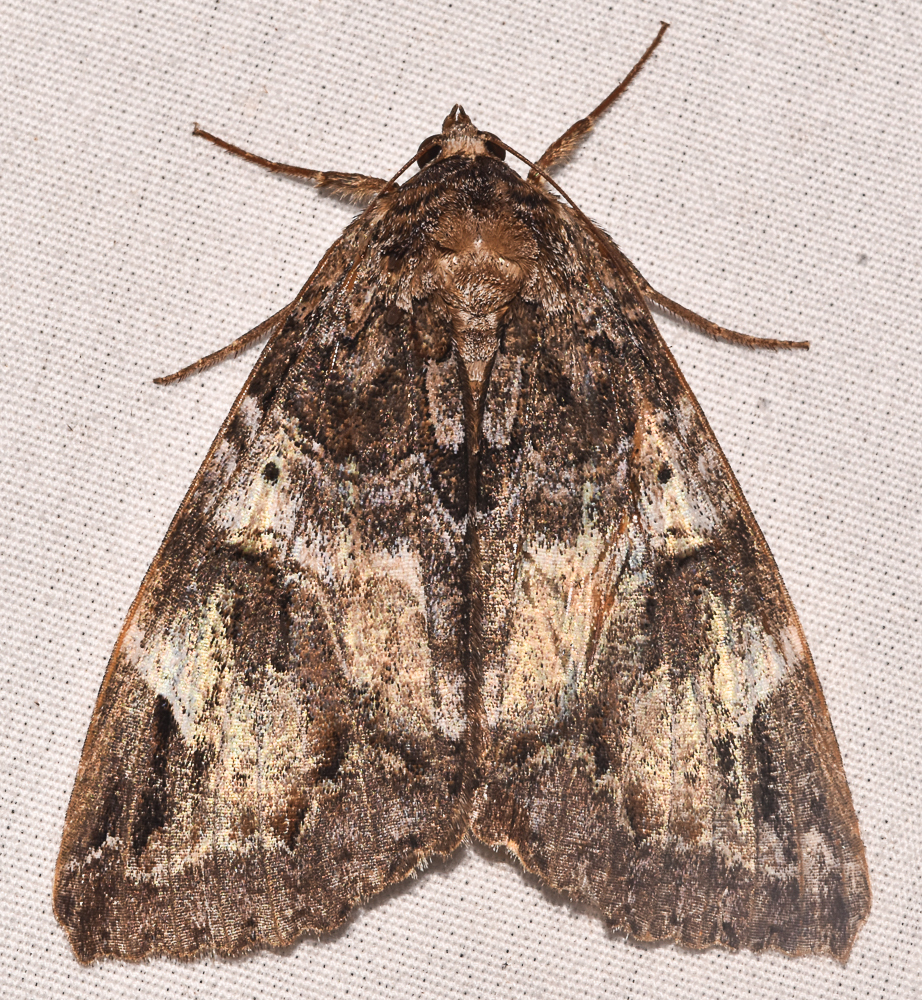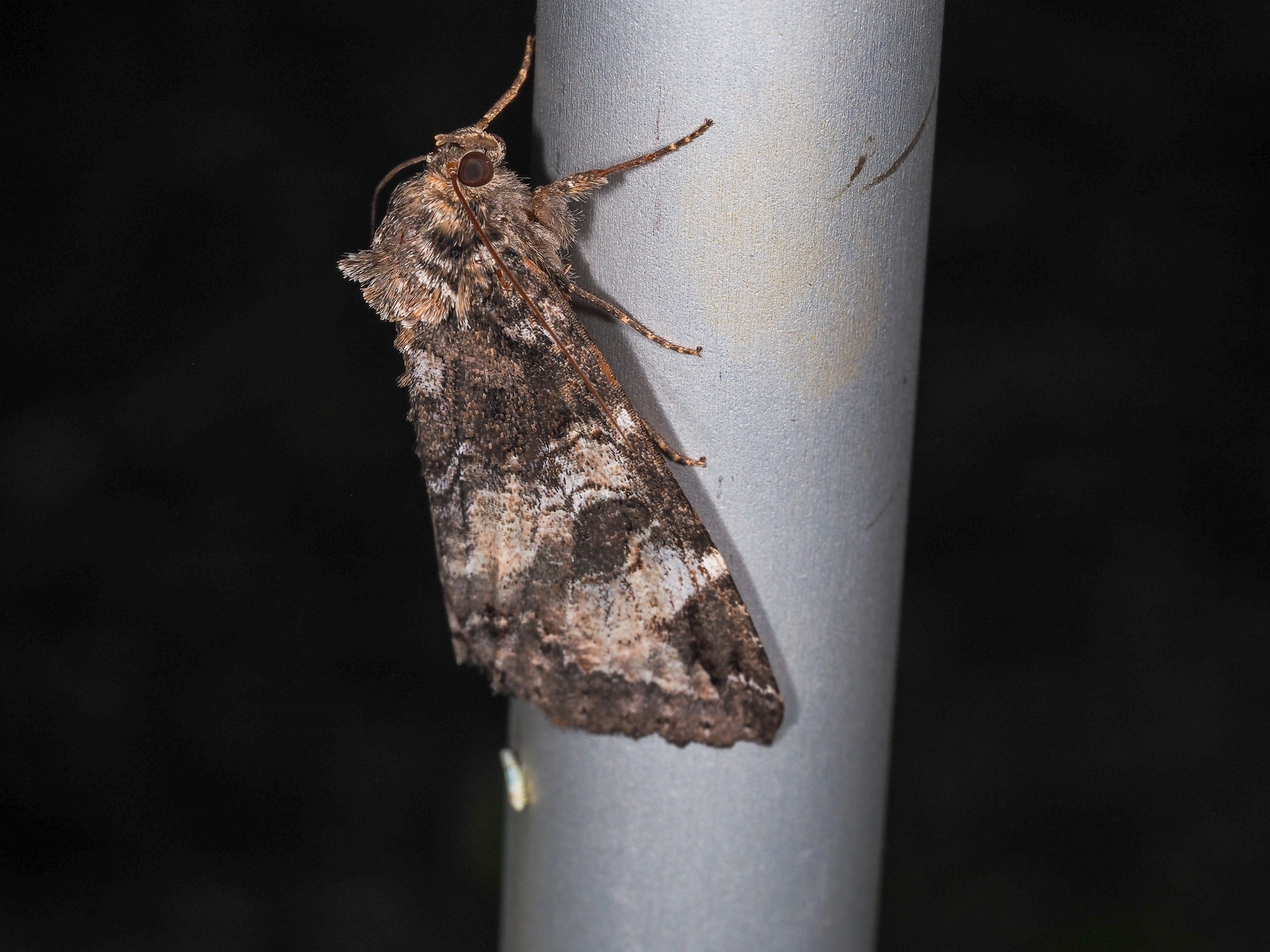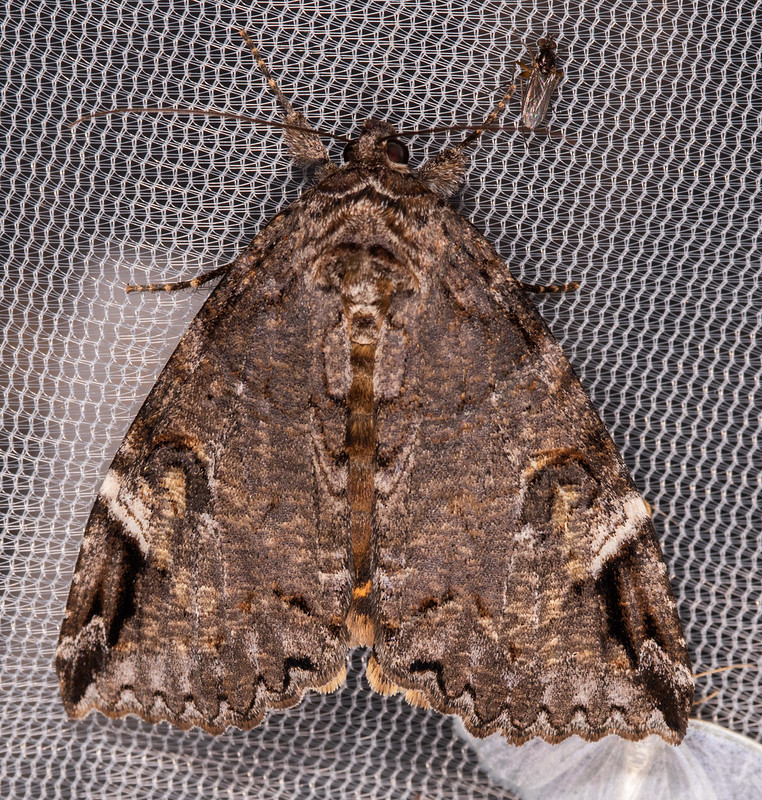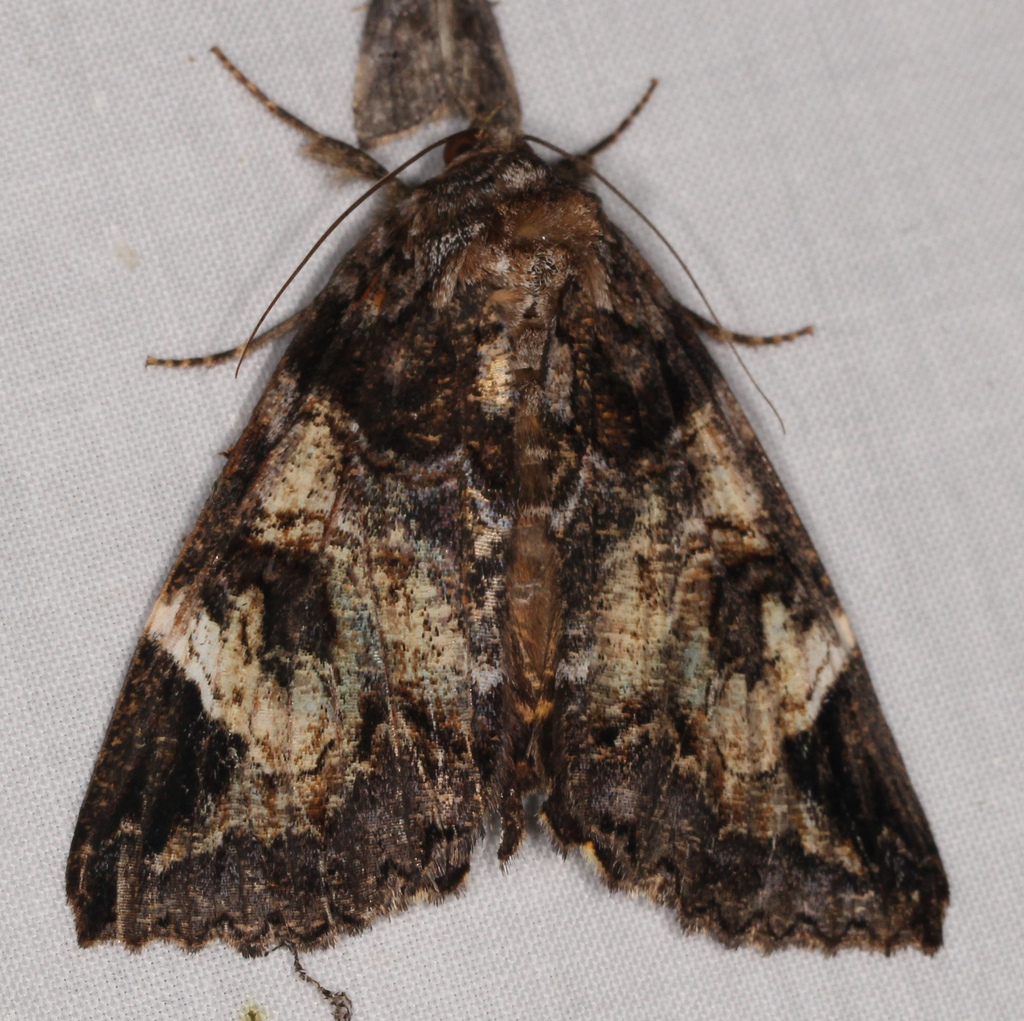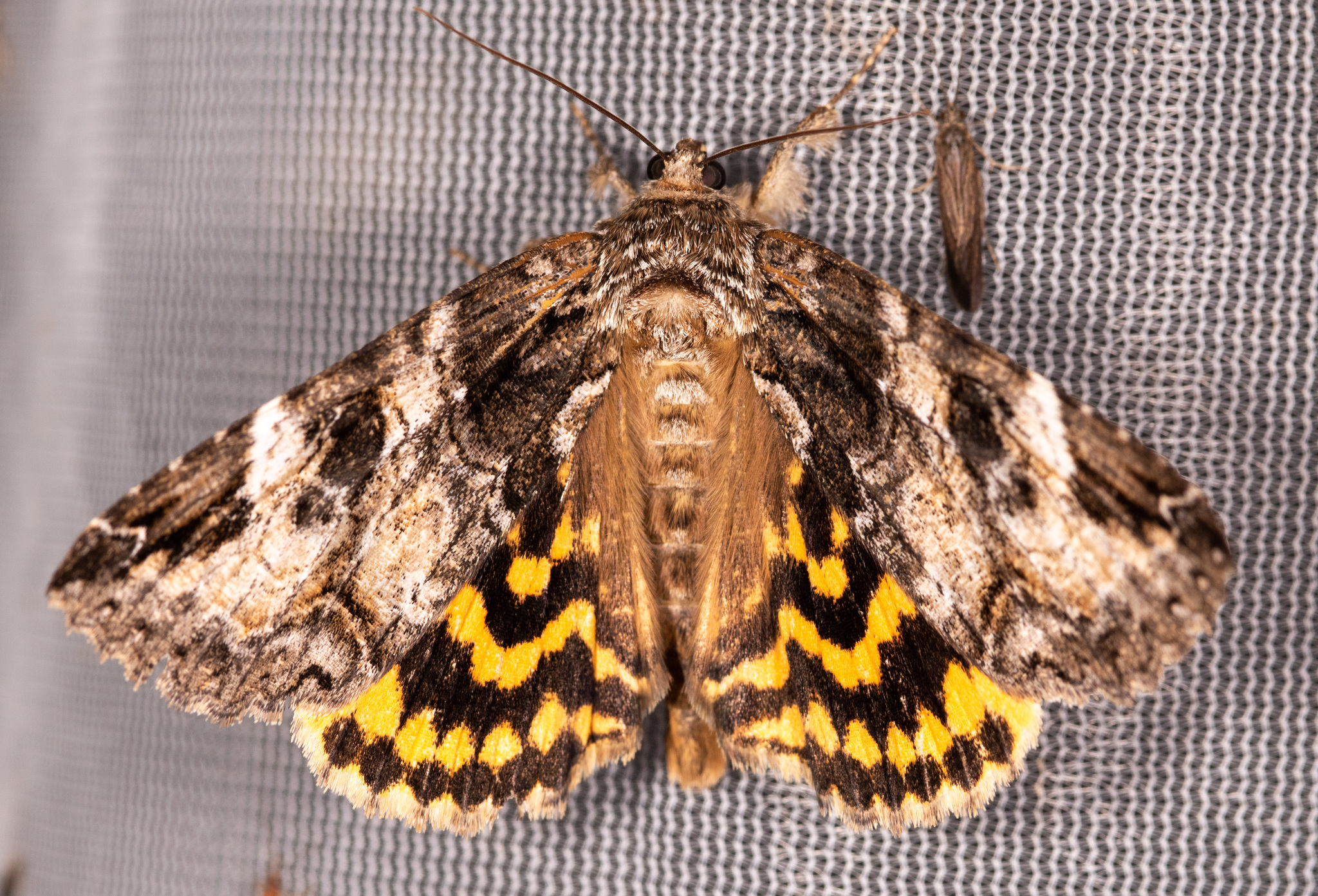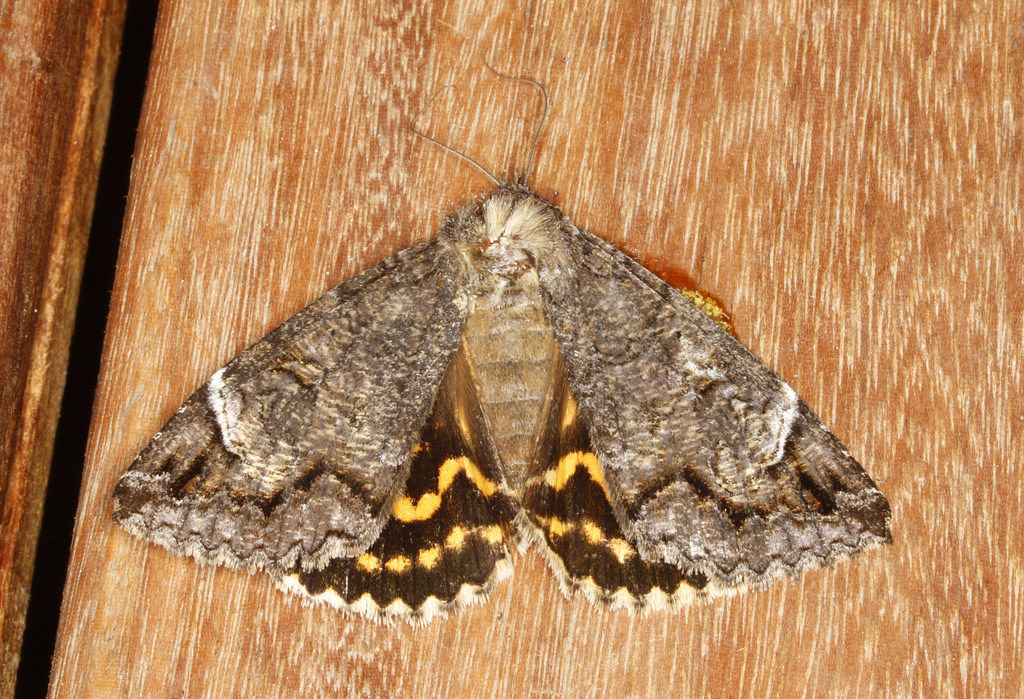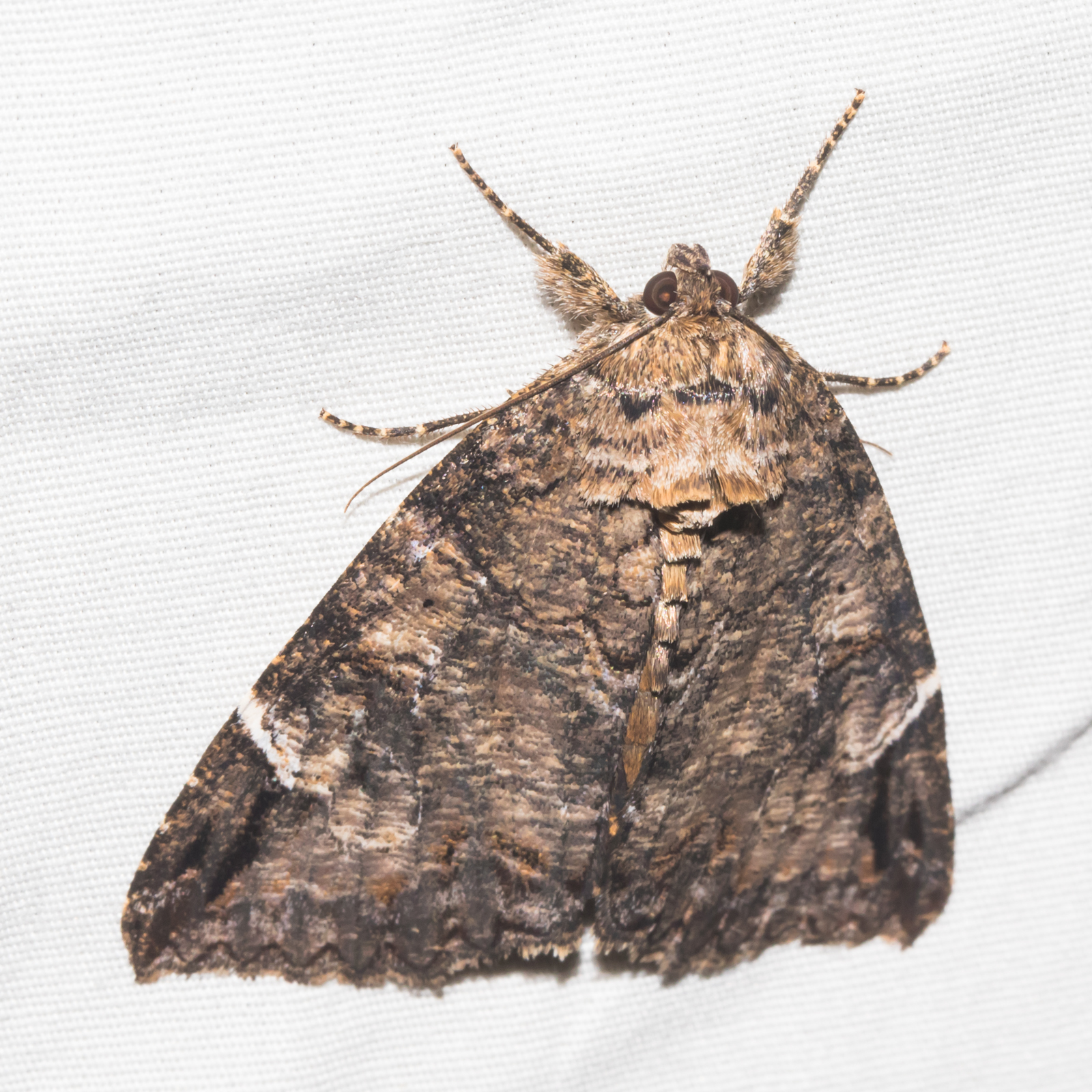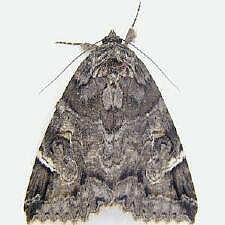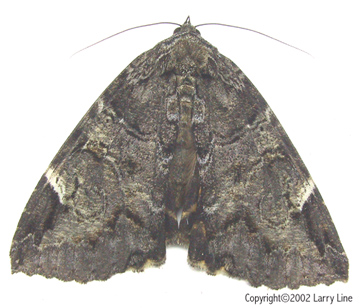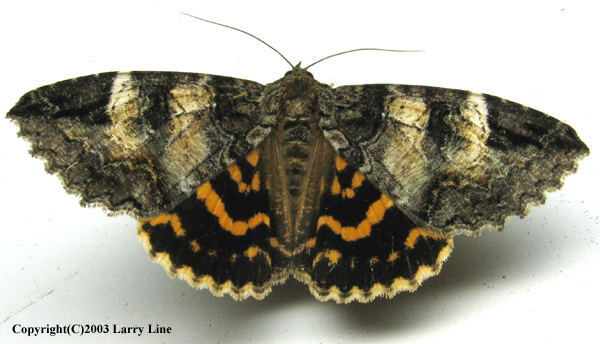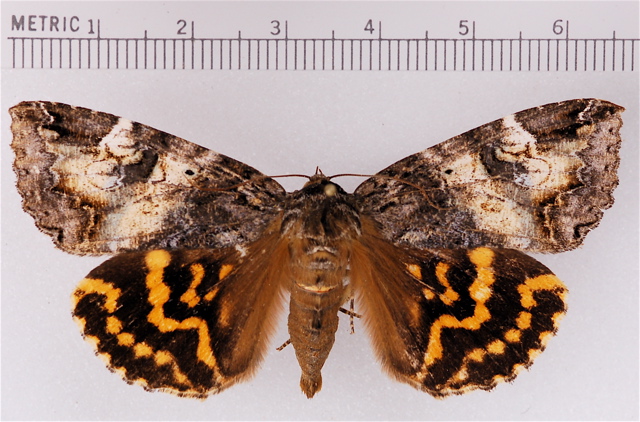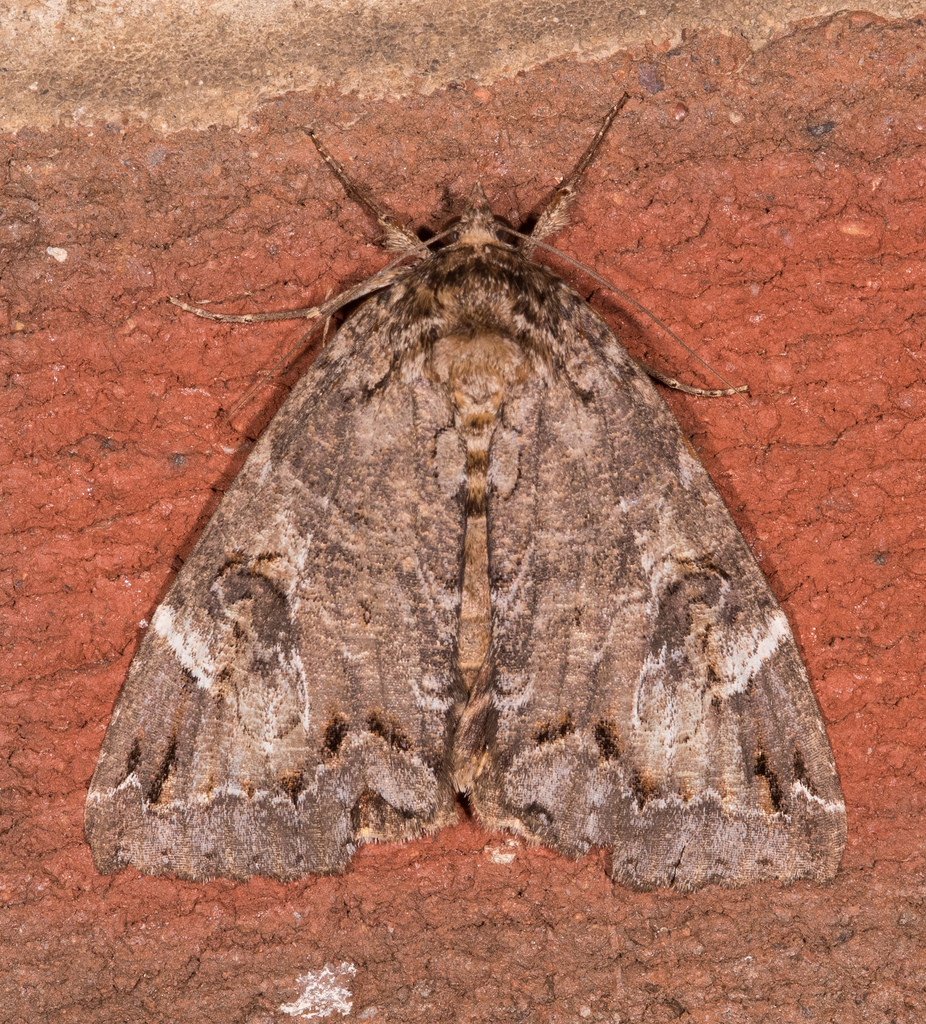Map Snapshot


















179 Records
Seasonality Snapshot
Source: Wikipedia
| Euparthenos | |
|---|---|

| |
| Upperside of imago (scale in centimeters) | |
| Scientific classification | |
| Domain: | Eukaryota |
| Kingdom: | Animalia |
| Phylum: | Arthropoda |
| Class: | Insecta |
| Order: | Lepidoptera |
| Superfamily: | Noctuoidea |
| Family: | Erebidae |
| Genus: | Euparthenos Grote, 1876 |
| Species: | E. nubilis
|
| Binomial name | |
| Euparthenos nubilis (Hübner, 1823)
| |
| Synonyms | |
|
See text | |

Euparthenos is a monotypic moth genus in the family Erebidae erected by Augustus Radcliffe Grote in 1876. Its only species, Euparthenos nubilis, the locust underwing, was first described by Jacob Hübner in 1823.[1] The adults resemble some of the underwing moths of genus Catocala, which are fairly close relatives, in color, pattern, and the habit of resting on tree trunks. But E. nubilis can usually be immediately recognized by the four concentric black bands per hindwing, as opposed to one or two (at most three) in Catocala. Color morphs of E. nubilis with altered pattern are known, however, and these may be hard to recognize without detailed examination.[2]
This moth has light grey forewings with a pattern of darker grey and brown lines and shading. The hindwings are yellow orange with the aforementioned four black bands each. The wingspan is 56–70 mm (over 2 to almost 3 inches.[3]
The species is found in North America from Maine, Ontario and Quebec, south to northern Florida, west to Nebraska and Arizona. Adults are on wing from April to September. There are two generations per year. The larvae feed on Robinia (locust tree) species, such as black locust (R. pseudoacacia). The adults like to drink the juice of fermenting fruit, and are attracted to lights.[3]
Systematics and taxonomy
[edit]Classification
[edit]The species and genus were previously classified in the subfamily Catocalinae of the family Noctuidae and in the tribe Ophiusini of the family Erebidae.[4]
Subspecies
[edit]The species has the following described subspecies.[4]
- Euparthenos nubilis apache (Poling, 1901)
- Euparthenos nubilis nubilis (Hübner, 1823)
- Euparthenos nubilis osiris Barnes & Benjamin, 1926
Synonyms
[edit]The junior synonyms of this moth are:[4]
- Genus-level:
- Catocalirrhus Andrews, 1877
- Parthenos Hübner, 1823 (non Hübner, 1819: preoccupied)
- Species-level:
- Euparthenos faciata (Beutenmüller, 1907)
- Euparthenos unilineata (Chermock & Chermock, 1940) (morph)
Footnotes
[edit]References
[edit]![]() Data related to Euparthenos at Wikispecies
Data related to Euparthenos at Wikispecies
- Murray, Tom (August 19, 2013). "Species Euparthenos nubilis - Locust Underwing - Hodges#8719". BugGuide. Retrieved October 23, 2019.
- Nelson, John M. & Loy, Peter W. (1983). "The Underwing Moths (Lepidoptera: Noctuidae) of Oklahoma". Proceedings of the Oklahoma Academy of Science. 63: 60–67.
External links
[edit]- "931055.00 – 8719 – Euparthenos nubilis – Locust Underwing Moth – (Hübner, 1823)". North American Moth Photographers Group. Mississippi State University. Retrieved October 23, 2019.
- Pitkin, Brian & Jenkins, Paul. "Search results Family: Noctuidae". Butterflies and Moths of the World. Natural History Museum, London.

